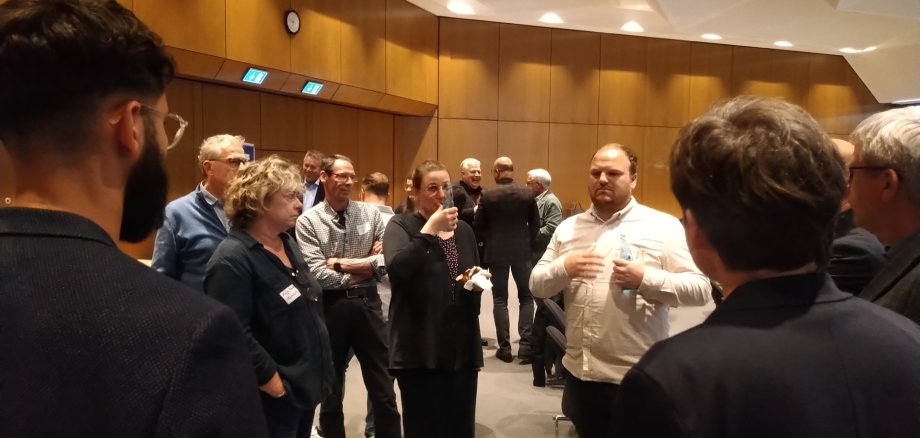Integrating people with a migration background into the labour market
How can the potential of people with a history of migration be utilised for the local labour market? This question was the focus of an information event organised by the district of Waldeck-Frankenberg, to which businesses and companies in the region were invited. The aim was to jointly find ways to better integrate immigrants into the local labour market and thus strengthen both the economy and society.
The event centred on expert input from the Land.Zuhause.Zukunft. programme office at the University of Hildesheim. Marlene Neumann pointed out that the recruitment of international skilled workers is a decisive factor for the future viability of the local economy, especially in rural regions such as Waldeck-Frankenberg. She emphasised that the successful and sustainable recruitment of immigrants can be achieved through targeted support and cooperation in local networks of administration, business and civil society.
The presentation by the district's Migration and Integration Centre aroused great interest. Career and language scout Christopher Max Hechsel explained how the district supports companies in the recruitment and integration of people with a history of migration - from career counselling and the recognition of qualifications to the placement of internships and language support.
The district's integration officer Latif Hamamiyeh Al-Homssi emphasised the importance of taking up employment for arriving in the district in his presentation of the Migration and Integration Office. "The people who come to the district bring great potential with them." "We need to recognise and promote this potential early on," added Christopher Max Hechsel. In the discussions that followed, the challenges also became clear: language barriers, bureaucratic hurdles and uncertainties in dealing with xenophobic statements in the workplace are a concern for many companies. At the same time, however, it was also emphasised that successful labour market integration contributes to economic stability and facilitates social integration.
The participants agreed that the shortage of labour and skilled workers can only be overcome if companies are supported in employing people with a history of migration - for example through legal certainty, less bureaucracy and suitable language courses. The event showed that there are already numerous initiatives and support programmes in the district, which should be further expanded and networked. "We want to talk to companies about their experiences and where we can provide support as a district. Together, we want to significantly improve access to our local labour market for people with a history of migration," emphasised Karl-Friedrich Frese, First District Councillor.
The integration of people with a history of migration offers the district of Waldeck-Frankenberg the opportunity to actively counter the shortage of skilled labour and make the region fit for the future. Close cooperation between all stakeholders is crucial here - from administration to business and civil society. The specialist centre sees the event as a kick-off and will offer further exchange and discussion platforms in the future. The district will analyse the impulses from the exchange and develop appropriate measures.
